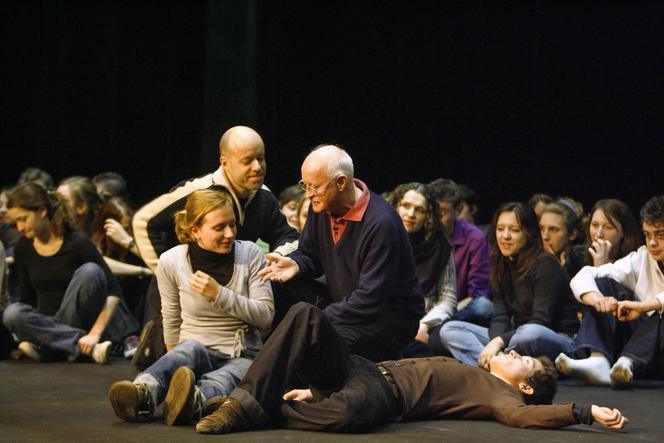


He had set himself the task of "traversing the extremes of human experience." Now, he has arrived at the ultimate experience. The British playwright Edward Bond died on Sunday, March 3, aged 89. He was one of the most significant playwrights of the second half of the 20th century, relentless in defending the anthropological, political and moral roles of theater in his more than 40 plays and theoretical writings.
He was not born into theater. Edward Bond was born on July 18, 1934, in a working-class district of North London, into a working family from an agricultural background. The bombings at the end of the Second World War left a lasting impression on him. In rebellion against the educational establishment, he left school at 15 to work in a factory. But school was enough to introduce him to the dramatic arts. "Shortly after the war, I went to see Macbeth with my class. I didn't understand a thing, it was all happening in a very distant universe, and yet, for the first time, someone was talking to me about my own life," he said in an interview with Le Monde in 2003. "Until then, nobody had told me why, during the war, people up there in their little planes had dropped bombs to kill us. And here, Shakespeare was talking to me about that... not directly, but he was telling me, at a very deep level, what it was to be human, with all the paradoxes that entails."
He began acting as an autodidact, writing unpublished plays for around 10 years, before his first "official" play, The Pope's Wedding, was published in 1961. But it was his second, Saved, which made him famous in 1965, triggering one of the biggest scandals in British theater history. The subject of controversy, in this text set in the ordinary life of the English sub-proletariat, was a scene involving the stoning of a baby. The play was banned by the British censors, but Bond did it again with his next work, in 1968: Early Morning, a gritty, hallucinatory farce and satire of Victorian society, featuring Queen Victoria with her lover Florence Nightingale. The play was immediately banned, but was in part responsible for the abolition of royal censorship in Great Britain at the end of 1968.
Bond went on to develop a body of work that remained controversial right up to the end, not least because of its relationship with violence. His work was soon more popular in France than in his own country. As early as 1972, director Claude Régy (1923-2019) helped introduce him to the world with his production of Saved, before Patrice Chéreau (1944-2013) consecrated him, with his staging of Lear, a radical rewriting of Shakespeare's play, in 1975. From the 1980s onwards, Bond largely broke away from the British institutional stage, preferring to work with children's or teenage troupes, or in the company of prison actors.
You have 44.95% of this article left to read. The rest is for subscribers only.
